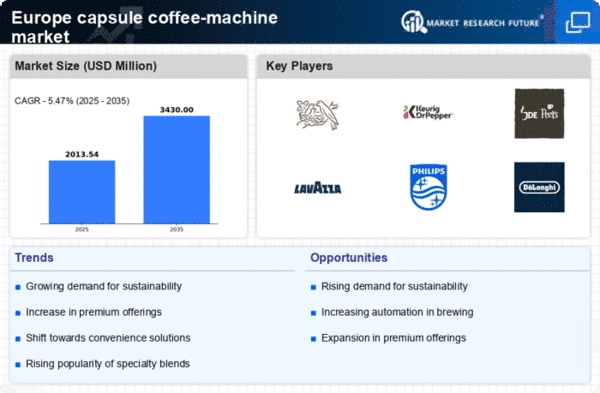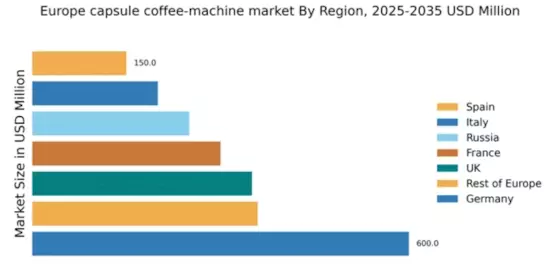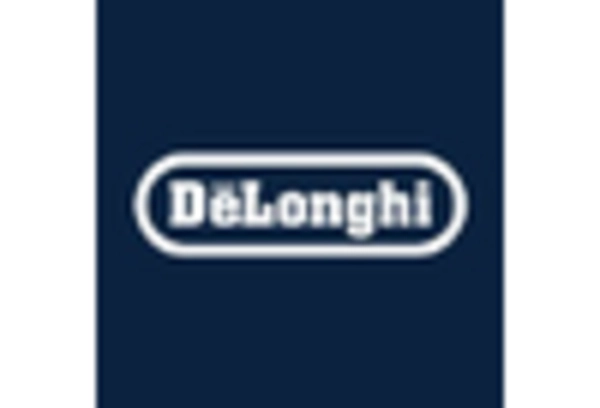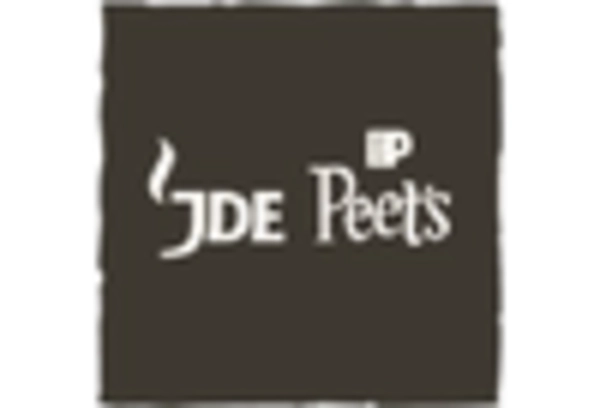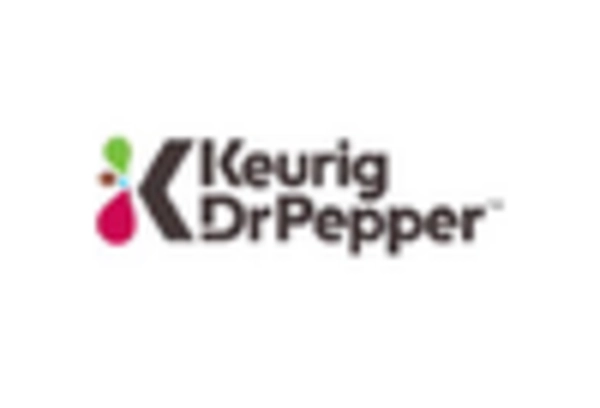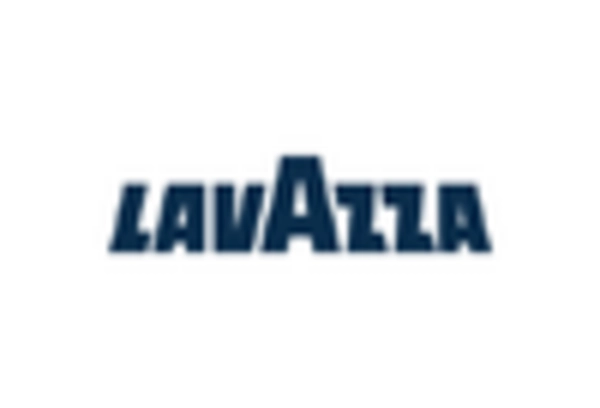Germany : Germany's Coffee Culture Thrives
Germany holds a dominant position in the European capsule coffee-machine market, with a market value of €600.0 million, accounting for approximately 30% of the total market share. Key growth drivers include a strong coffee culture, increasing consumer preference for convenience, and a rise in home brewing. Regulatory policies promoting sustainable practices and government initiatives supporting local coffee producers further enhance market growth. The robust infrastructure and industrial development in cities like Berlin and Munich facilitate efficient distribution and innovation in coffee technology.
UK : UK's Coffee Trend on the Rise
The UK capsule coffee-machine market is valued at €350.0 million, representing about 17% of the European market. The growth is fueled by a shift towards premium coffee experiences at home and the increasing popularity of specialty coffee. Consumer trends indicate a preference for eco-friendly products, prompting brands to innovate. Government initiatives aimed at reducing waste and promoting recycling are also influencing market dynamics. The urban centers of London and Manchester are key markets driving this trend.
France : France's Premium Coffee Market
France's capsule coffee-machine market is valued at €300.0 million, capturing roughly 15% of the European market. The demand for high-quality coffee and the influence of French café culture are significant growth drivers. Consumers are increasingly seeking convenience without compromising on taste, leading to a rise in premium offerings. Regulatory policies focusing on sustainability and waste reduction are shaping the market landscape. Key cities like Paris and Lyon are central to this trend, with a competitive landscape featuring major players like Nestle and JDE Peet's.
Russia : Russia's Coffee Consumption Rising
The Russian capsule coffee-machine market is valued at €250.0 million, accounting for about 12% of the European market. The growth is driven by increasing urbanization, a burgeoning middle class, and a growing coffee culture. Demand for convenience and quality is rising, supported by government initiatives promoting local coffee production. Major cities like Moscow and St. Petersburg are key markets, with a competitive landscape featuring both international and local brands. The market is characterized by a mix of traditional and modern coffee consumption habits.
Italy : Italy's Coffee Legacy Endures
Italy's capsule coffee-machine market is valued at €200.0 million, representing about 10% of the European market. The growth is driven by a blend of traditional coffee culture and modern convenience. Italian consumers are increasingly adopting capsule machines for their ease of use while maintaining a preference for high-quality coffee. Regulatory policies supporting local coffee producers and sustainability initiatives are also influencing the market. Key cities like Milan and Rome are central to this trend, with major players like Lavazza and De'Longhi leading the market.
Spain : Spain's Coffee Market Expands
Spain's capsule coffee-machine market is valued at €150.0 million, capturing about 7% of the European market. The growth is driven by changing consumer habits, with a shift towards coffee machines that offer convenience and quality. The increasing popularity of coffee culture, especially among younger consumers, is a significant factor. Government initiatives promoting sustainable practices are also shaping the market. Key cities like Madrid and Barcelona are pivotal, with a competitive landscape featuring both local and international brands.
Rest of Europe : Varied Preferences Across Europe
The Rest of Europe capsule coffee-machine market is valued at €359.11 million, accounting for about 18% of the total market. This diverse region showcases varying consumer preferences, with growth driven by increasing coffee consumption and a shift towards convenience. Regulatory policies promoting sustainability and innovation are influencing market dynamics. Key markets include Scandinavia and Eastern Europe, where local brands compete with established players. The competitive landscape is characterized by a mix of traditional and modern coffee consumption patterns.


